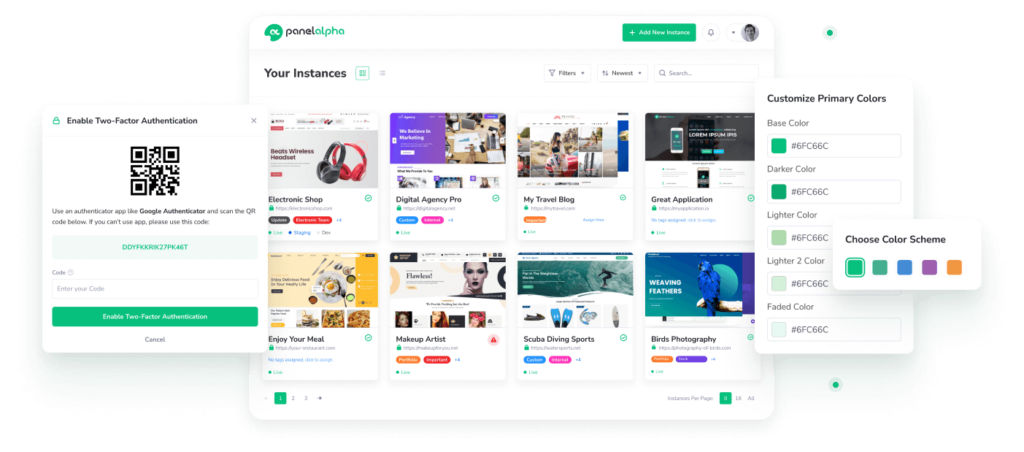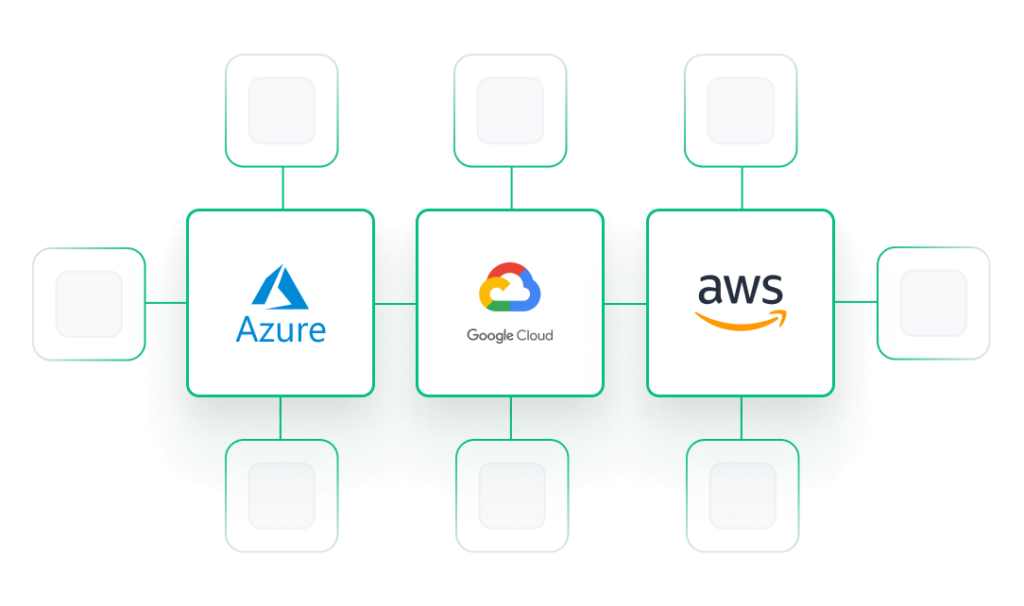With PanelAlpha successfully launched into production, it is hard to imagine a better moment to celebrate the dedication and hard work that paved the way for this precious accomplishment. The time is also perfect to cast a glimpse at all the bold visions into the future of our platform’s development.

In order to ensure full reliability of such an account, we’ve decided to engage our inspirational and result-driven CEO, Konrad Keck in a thought-provoking discussion, and ask him a couple of questions that will shed light on all the most vital aspects related to PanelAlpha.
The “why” behind all of it
When inquired about the challenges in managing WordPress hosting services that he aimed to solve by developing PanelAlpha, Konrad didn’t hesitate even for a second to thoroughly detail his observations and motives:
“WordPress is the most popular CMS system, used for over 43% of all websites on the Internet. Roughly 1000 new WordPress websites are created every day. At the same time, managing WordPress from the end-customers’ perspective is not an easy task itself. They struggle with problems such as maintaining outdated code, theme customization, plugin overload, endless maintenance, and scaling issues, impacting its optimization and security.
Providing a platform that has a set of tools reducing the customer’s hassle with such a popular solution as WordPress is, in my opinion, essential for a web hosting business. It offers much more than just a hosting service – a well-designed product that goes beyond the customers’ expectations and takes their experience to the next level.
Adopting a customer-oriented approach
What always causes major concern is the issue of creating IT solutions in such a way that they are perceived as intuitive and user-friendly. Fully aware of the importance of this, we asked Konrad what steps he had taken throughout the design process to make sure the platform would be sufficiently easy to use. This is what we got:
“PanelAlpha has been designed as a user-centric solution so it is optimized in terms of user experience and UI. I guess that you can tell that by just looking at our live demo. We have hidden the more complex features, intended for more advanced users, deeper in the system, and moved the aspects related to a hosting account to another page, which helped ensure clarity and simplicity.

He then proceeded smoothly to another factor of crucial importance in the whole process of deciding about the platform’s functionalities and features.
“We have also analyzed the customer’s point of view and focused on another important aspect: collaboration. Many of the owners of WordPress sites are not really technical – they hire designers and programmers to do the changes on their sites and to take care of the maintenance. This is why we’ve added an option to share access to a site with control of privileges. This will allow end-customers to easily collaborate with their team and work together on their site.
With flexibility high on the agenda
Lone rangers don’t seem to score high in the web hosting industry, which is why PanelAlpha has been designed to integrate well with other popular platforms and tools. Konrad eagerly elaborated on this, starting with the currently available options:
“In terms of the web hosting environments, we’ve designed the system to be flexible and allow our customers to use their preferred platform. For now the platform offers integration with cPanel, Plesk and DirectAdmin. Aside from these optional solutions, there is also a possibility of using PanelAlpha Engine instead. We also have a flexible configuration of email and DNS servers.
When asked to share his plans for the future development in the integration department, the PanelAlpha’s originator revealed with excitement:
“It’s very likely that we’ll add more integrations in the near future – we’re exploring options to integrate with cloud providers as well, such as Amazon Web Services, Microsoft Azure or Google Cloud. This will allow companies to offer WordPress hosting on cloud even without their own infrastructure.
What’s more, when it comes to other tools, we are also exploring integrations with SSL providers, security platforms or extra tools for WordPress such as Extendify. We want to provide a great set of upselling methods for the companies to increase the ARPUs and profits while ensuring that their service is of the highest quality.

Acting upon constructive feedback
As Konrad has been taking part in the platform’s developments since the very beginning, we thought he would best address the question about PanelAlpha’s greatest strengths. Without lingering on the topic for long, he promptly let us in on his perspective, highlighting key aspects such as modern UI, UX-centered approach, collaboration tools and a flexible web hosting environment configuration.
Obviously, there is no such tool that wouldn’t benefit from (or require) some enhancements. Konrad, fully focused on reaching the highest levels of optimization and efficiency, realizes it better than anyone. This is why he devoted his scrupulous attention to the testing phase. Here’s how he summed up experiences of the beta-test users and how they affected the platform’s evolution:
“So far the feedback has been nothing but positive. Our customers helped us to improve over 100 issues during the BETA phase and suggested dozens of features and improvements that we plan to add in the near future.
Most importantly, however, they have expressed their enthusiasm, saying that our tool is a breath of fresh air and a next-level control panel that they are looking forward to using in their companies. This reassured us we’re on the right path.
What the future holds…
The launch of the stable version doesn’t mean the platform’s development has come to an end. Quite the opposite, to be honest. As Konrad put it:
“Our top priority for the upcoming months is to add more tools and functionalities around WordPress management and finish our PanelAlpha Engine as v1, because now the control panel operates as a BETA version. We will also soon be working on webmail and file manager to be available within our system.
One might say the plan is already impressive, but Konrad didn’t mind pointing out other angles awaiting further expansion:
1. Integrated billing and upselling functionality
As keeping users within PanelAlpha is definitely among his top priorities, Konrad has an idea to provide integration with a billing system that will be used with a sole purpose of accessing invoices and payments. He explained it this way:
“Once we have that in place, we will establish an easy way to add extra paid services for end customers. This will increase the ARPU and revenue for companies that use our platform.
2. Cloud solutions:
It has already been mentioned that one of the key aspects of the expansion is to provide the platform with integration with the biggest cloud providers on the market. According to our visionary leader, thanks to this, companies using our software can stay ahead of the curve and remain competitive in the dynamic web hosting industry.
3. Resellers:
Since there have been numerous requests from our BETA testers stating that our system could use an extra level for resellers, exploring the platform’s potential in this area is definitely one of our CEO’s goals.
4. More applications:
The attitude Konrad values above all is being ready to step beyond the confines of the present. His brief conclusion gives us all a valuable insight into the future endeavors:
“Once we are done with powerful WordPress automation, the next step is to add a similar toolkit for e-commerce platforms and other popular web applications.
Going for CloudFest, going for more!
In light of the above, no wonder that Konrad – along with us all, determined to ensure smooth growth of PanelAlpha – sees the Gold Partner status at the approaching CloudFest as an opportunity to synchronize the platform’s current capabilities with what’s on top of our development agenda. A couple of days left until the big event, so soon we will find out what fascinating opportunities the future holds for our platform and what are the next chapters of our great WordPress automation adventure.








Comments